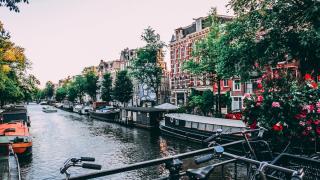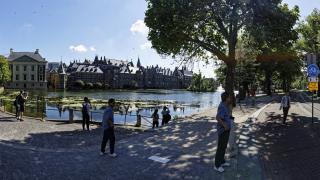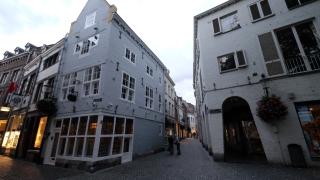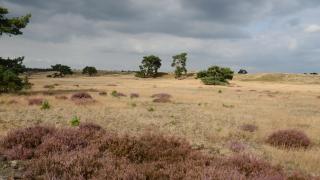Dutch Ways: Everyday Customs
Directness is valued in Dutch culture. People say what they mean, even in business meetings. Egalitarianism shapes daily life. Titles are rarely used, even with managers or professors. Everyone is addressed by first name.
Typical greetings: A handshake is common. Friends greet with three kisses on the cheek, starting left. Personal space is important. Standing too close is avoided, even on busy trains.
Time and punctuality: Being late is considered rude. Arriving even five minutes late often requires an apology. Appointments are scheduled weeks in advance. A Dutch agenda (calendar) is used for both work and social plans.
Daily interactions: People split bills exactly ("going Dutch"). Coffee is served at set times, usually 10:30 and 15:00. Neighbors may keep curtains open, showing nothing to hide.
- Direct communication
- Egalitarian address
- Strict punctuality
- Precise bill-splitting
- Fixed coffee breaks
- Respect for personal space
- Open curtains as a sign of trust
Festive Traditions: Celebrations & Holidays
King's Day (Koningsdag) is celebrated on April 27. Streets in Amsterdam, Utrecht, and other cities fill with orange-clad crowds. Flea markets (vrijmarkt) allow anyone to sell goods without a permit. Entry is free. Music, boat parades, and street food are common. Public transport runs late, but roads close early. Most shops shut for the day.
Sinterklaas arrives by steamboat in mid-November. Parades occur in nearly every town. Children place shoes by the fireplace, hoping for small gifts. Sinterklaasavond (December 5) is the main gift-giving night. Chocolate letters and marzipan are traditional treats. Participation is mostly family-based, but public parades are open to all.
Carnival is celebrated mainly in the southern provinces (Noord-Brabant, Limburg). It starts the weekend before Lent. Parades, costumes, and music fill the streets. Many businesses close for three days. Visitors are welcome but should wear costumes to blend in.
Liberation Day (Bevrijdingsdag) is on May 5. It marks the end of WWII occupation. Free festivals and concerts take place nationwide. Amsterdam and Wageningen host major events. Flags are flown on public buildings.
Tips for visitors:
- Dress in orange for King's Day.
- Respect local customs, especially during Sinterklaas.
- Join public events, but avoid private family gatherings.
- Check local schedules for road closures and event times.
Food Rituals: Eating the Dutch Way
Dutch meals follow a set routine. Breakfast (ontbijt) is usually bread with cheese or hagelslag (chocolate sprinkles). Lunch (lunch) is often a cold meal, again featuring bread, cheese, and sliced meats. Dinner (avondeten) is served early, around 18:00, and includes potatoes, vegetables, and meat.
Bread (brood) and cheese (kaas) are central. Dutch people eat 49 kg of bread and 21 kg of cheese per person per year. Coffee breaks (koffietijd) are common, usually at 10:30 and 15:00, often with a biscuit (koekje).
Birthday tradition: The birthday person brings treats (trakteren) for colleagues or classmates. Popular choices are cake or sweets.
Dining etiquette: At home, wait for the host to say "eet smakelijk" before eating. In restaurants, splitting the bill (going Dutch) is normal. Tipping is not required but rounding up the bill is appreciated. Meals are quick; lunch rarely lasts more than 30 minutes.
Cycling Culture: More Than Transport
Cycling is a core Dutch tradition. Over 22 million bicycles exist for 17 million people. Bikes are used daily for school, work, and shopping. Fietspaden (bike lanes) are everywhere, marked in red. Locals expect strict bike etiquette:
- Always signal turns with your hand.
- Never walk or stop in bike lanes.
- Give right of way to cyclists at most crossings.
Fietsverhuur (bike rental) shops are common. Rental costs average €10-€15 per day. Most Dutch use upright city bikes (omafiets). Locals lock bikes with two locks—one on the wheel, one on a pole. Helmets are rare for adults. Lights are required after dark; fines start at €55 for missing lights.
Respecting bike traffic lights and not blocking fietspaden is essential. In cities like Amsterdam and Utrecht, cycling is faster than driving. Visitors should observe locals and follow their pace.
Gift-giving is not common in Dutch culture. If invited to a Dutch home, bring flowers (not chrysanthemums) or a small gift. Gifts are opened immediately. Avoid giving expensive items. Tipping is modest in the Netherlands. Service charge is included in restaurant bills. Rounding up or leaving 5-10% is appreciated but not required. Cash and debit cards (pinpas) are widely used; credit cards are less common outside tourist areas. Sensitive topics include money, religion, and politics. Avoid discussing salaries or personal finances. Direct questions about religion can be seen as intrusive. Apologies are brief and direct. Say "Sorry" or "Het spijt me" if you make a mistake. If you misunderstand, clarify by saying "Kunt u dat herhalen?" (Can you repeat that?). Punctuality is important. Arrive on time for social and business appointments. Being late is considered disrespectful.
Traveler’s Toolkit: Engaging with Tradition
Checklist for cultural engagement:
- Learn basic Dutch greetings: "Hallo" (hello), "Dank je wel" (thank you).
- Dress modestly for church visits; jeans are acceptable in most settings.
- Observe silence in Remembrance Day ceremonies (May 4, 20:00).
Where to experience traditions:
- Join Sinterklaas parades in Amsterdam or Utrecht (mid-November, free).
- Visit Zaanse Schans for traditional crafts (entry: €15, 20 minutes from Amsterdam).
- Attend a cheese market in Alkmaar (Fridays, April-September, 10:00-13:00, free).
Resources for learning more:
- Dutch Open Air Museum (Arnhem, entry: €19.50).
- Local libraries offer Dutch culture books in English.
Embrace local customs by joining community events and asking questions. Dutch people appreciate genuine interest in their traditions.












